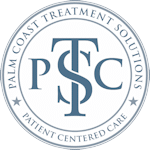Popular Post

Substance use disorder (SUD) is a complex condition that affects millions of individuals worldwide. To gain a deeper understanding of SUD, this blog will explore the topic through the lens of psychological research and neuroscientific findings, drawing upon reputable sources such as the Journal of Personality and Social Psychology, Consulting Psychology Journal: Practice and Research, and Behavioral and Brain Functions. By examining the underlying factors, impact, and treatment approaches related to SUD, we aim to shed light on this important issue and contribute to ongoing discussions and efforts to combat substance abuse.
To establish a foundation for our exploration, let us begin by providing a clear definition of SUD and familiarizing ourselves with the diagnostic criteria used to identify and diagnose the disorder. SUD encompasses a range of symptoms and severity levels, which are categorized based on specific criteria outlined in the Diagnostic and Statistical Manual of Mental Disorders (DSM-5)
Psychological Factors Contributing to Substance Use Disorder: The psychological aspects of SUD play a crucial role in its development and maintenance. Research in psychology has revealed various factors that contribute to substance abuse and addiction. Personality traits such as impulsivity, sensation-seeking, and low self-esteem have been linked to an increased risk of engaging in substance abuse behaviors. Additionally, cognitive processes, including decision-making, reward processing, and self-control, influence the likelihood of developing SUD. Emotional vulnerabilities, such as anxiety, depression, and trauma, also contribute to the development of substance abuse as individuals may turn to substances as a coping mechanism. Understanding these psychological factors helps us grasp the complexity of SUD and underscores the importance of addressing underlying issues in treatment.
Advancements in neuroscience have provided valuable insights into the brain mechanisms involved in SUD. Neuroimaging studies have revealed alterations in brain regions associated with reward processing, motivation, and impulse control among individuals with SUD. These findings help explain the intense cravings, loss of control, and difficulty in quitting substances experienced by individuals with addiction. Moreover, research has highlighted the role of neurotransmitters, such as dopamine and serotonin, in the reinforcement of drug-seeking behaviors. By understanding the neurobiological underpinnings of SUD, we can develop targeted interventions and treatment strategies.
The repercussions of SUD extend beyond individual experiences and have significant societal implications. Substance abuse contributes to various negative outcomes, including impaired physical and mental health, strained interpersonal relationships, reduced work productivity, and increased healthcare costs. Additionally, substance abuse has been associated with criminal activities and legal issues. By examining the broader impact of SUD, we can recognize the need for comprehensive approaches that address not only individual treatment but also social and economic factors.
Treatment Approaches: Detox, PHP, and IOP Programs: Treating SUD requires a comprehensive and tailored approach. Detoxification (detox) programs provide a critical first step in the treatment process by managing withdrawal symptoms and ensuring the safe removal of substances from the body. Following detox, Partial Hospitalization Programs (PHP) and Intensive Outpatient Programs (IOP) offer structured treatment options that provide ongoing support, therapy, and skill-building to individuals in recovery. These programs offer a continuum of care that addresses the unique needs of individuals at different stages of their recovery journey.
Recognizing that SUD is a complex condition, holistic approaches to treatment have gained prominence. These approaches encompass integrating various therapeutic modalities such as counseling, behavioral therapies, family involvement, and peer support groups. By addressing the physical, psychological, and social aspects of addiction, holistic approaches aim to promote long-term recovery and overall well-being. Furthermore, advancements in technology and neuroscience offer promising avenues for future interventions.
Substance use disorder is an intricate and pervasive issue that requires a comprehensive understanding from both psychological and neuroscientific perspectives. By examining the psychological factors, neurobiological mechanisms, and societal impact of SUD, we gain valuable insights into the nature of addiction and the challenges faced by individuals and communities. Moreover, exploring treatment approaches such as detox, PHP, and IOP programs highlights the importance of providing a continuum of care to support individuals in their recovery journey. As we continue to advance our knowledge and approaches in understanding and treating SUD, it is crucial to adopt holistic and personalized interventions that address the multifaceted nature of addiction. By combining scientific research, clinical expertise, and compassion, we can make significant strides in helping individuals overcome substance use disorders and lead fulfilling lives free from addiction.
Contact Us
CALL US NOW
Palm Coast Treatment Centers will iron out the details for you in a manner that will make you confident in your path to sobriety. That first simple call is your ticket to making Palm Coast Treatment Centers your solution for addiction. Get the freedom from addiction that you deserve today.
Call Us Now: (386) 284-4151Updated News
LATEST POSTS
Palm Coast Recovery Solutions makes numerous media outlets available to encourage you in your recovery process. Digital media literature is approved by a licensed professional and intended to guide you in your recovery path.

Years of experience
Our leadership team has extensive experience in dual-diagnosis treatment and is ready to help those who are struggling with substance use and mental health.

Specialists
Our staff consists of many licensed addiction and mental health treatment facilitators and other staff who are ready to share their experience and their success.

Happy patients
Palm Coast Treatment Centers has helped over 2,000 people who have struggled with substance use and mental health to find road to recovery.
Contact Us
GET IN TOUCH
Reaching out to Palm Coast Treatment Centers may be the most important call of your recovery process. A caring professional is waiting for your call to be your guide to addiction-free living.
Need Help? Contact Us
Areas and Cities We Serve SUD & Mental Health Treatments in Florida
OviedoOrlandoDelandJacksonvillePort St. LucieTampaAltamonte SpringsKissimmeeSt CloudWinter GardenWinter ParkClermontMelbourneSanfordDeltonaLake MaryMount DoraLeesburgThe VillagesUnion ParkSt. AugustineDupontPort OrangeOrmond BeachHolly HillDaytona BeachEdgewaterOak HillMaytownEldoraGenevaTitusvilleChristmasPort St. JohnPort CanaveralCocoa BeachOsteenSatellite BeachPalm BayRoselandSebastianFellsmereGiffordRockledge
 info@shc.health
info@shc.health 









